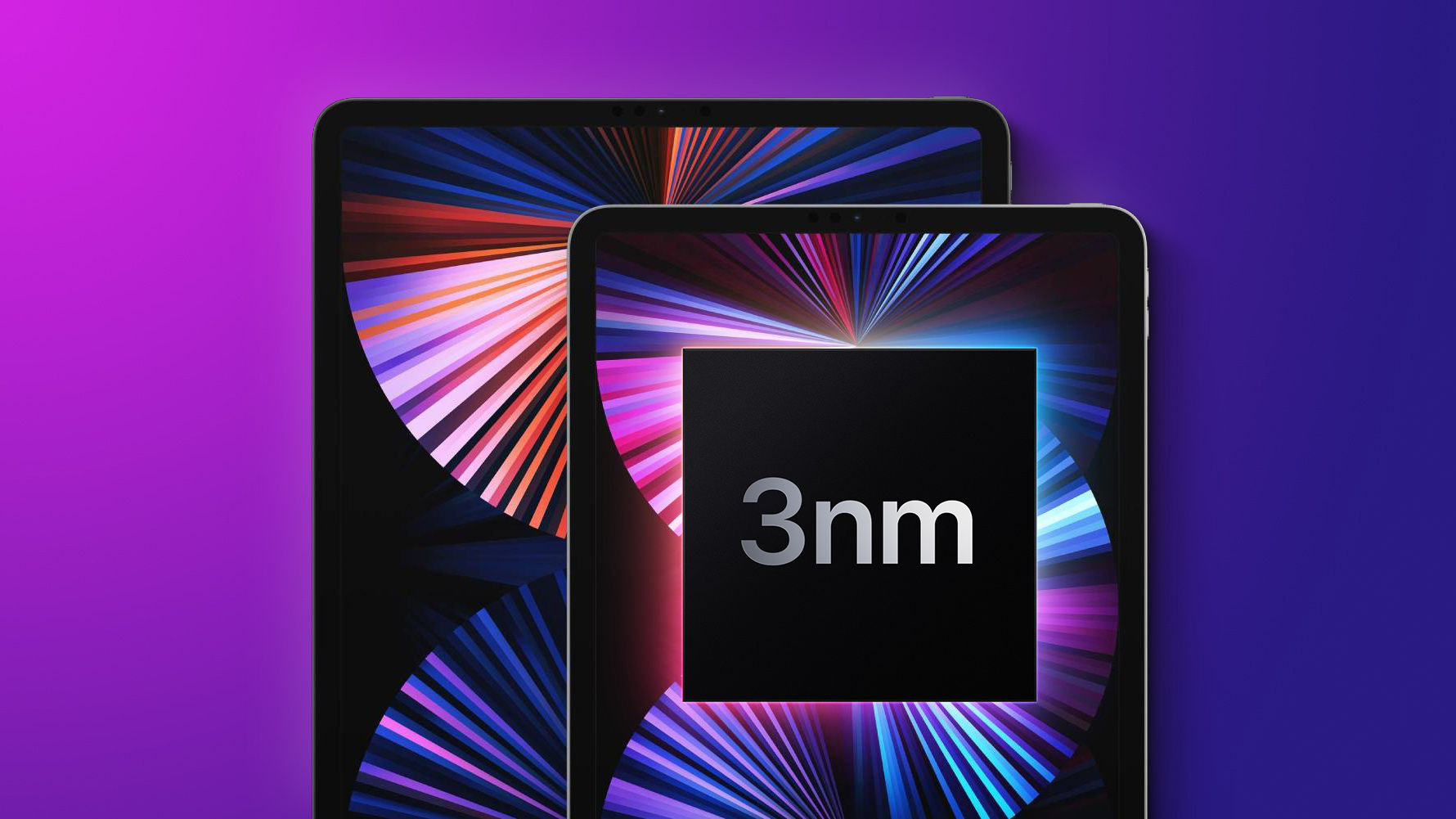
Apple will launch an iPad next year featuring a processor based on chipmaking partner TSMC's next-generation 3-nanometer process, according to a new report today from Nikkei Asia.

According to TSMC, 3nm technology can increase processing performance by 10% to 15% compared to 5nm tech, while reducing power consumption by 25% to 30%.Apple and Intel are testing their chip designs with TSMC's 3-nanometer production technology, according to several sources briefed on the matter, with commercial output of such chips expected to start in the second half of next year.
Apple's iPad will likely be the first devices powered by processors made using 3-nm technology, sources said. The next generation of iPhones, which are to roll out next year, are expected to make use of the intermediate 4-nm tech for scheduling reasons.
If today's report is accurate, this would be the second time in recent years that Apple has debuted new chip technology in an iPad before using it in its flagship smartphones.
Apple is using its latest 5-nanometer chip technology in the current iPad Air, which launched in September, with the tablet equipped with a 6-core A14 Bionic chip. Apple doesn't often use new chip technology in an iPad before it debuts in an iPhone, but that is what happened in 2020 due to the delayed release of the iPhone 12 models. The iPhone 12 also features the same A14 Bionic chip.
The latest iPad Pro models, which launched in April, feature the powerful M1 chip, which first debuted in Apple Silicon Macs last year. The M1 chip is based on the same 5nm architecture as the iPhone 12 series and iPad Air.
Whether Apple debuts the next-gen 3nm chip technology in an iPad Air or iPad Pro is unclear, although the timing looks likely to favor the iPad Pro. Apple typically updates the iPad Pro every 12 to 18 months, which could see a next-generation model appear in the second half of 2022.
That would put the iPad Pro close to the timeframe reported for the commercial use of 3nm, whereas production on a next-generation iPad Air with an OLED display is rumored to start in the fourth quarter of this year, with a launch to happen in early 2022.
According to Nikkei's sources, the chip volume planned for Intel is more than that for Apple's iPad using the 3nm process. Intel is said to be relying heavily on TSMC until it can get its own in-house technology back on track. Intel has delayed the introduction of its own 7nm technology to around 2023, while the release of its latest 10nm Xeon processors has been pushed forward into the second quarter of next year.
As for Apple's iPhone 13, expected in September, Apple will use a 5nm+ A15 chip. The 5nm+ process, referred to by TSMC as N5P, is the "performance-enhanced version" of its 5nm process that will deliver additional power efficiency and performance improvements. Today's report also backs a previous one claiming that the A16 chip in 2022 iPhones will be manufactured based on TSMC's future 4nm process.
Article Link: Apple Likely to Debut Next-Gen 3nm Chip Technology in 2022 iPad Pro
Last edited:

